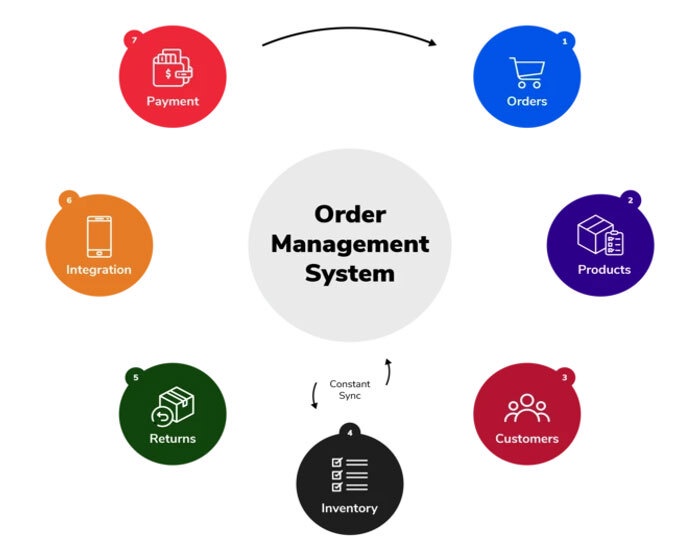The E-commerce industry has witnessed rapid growth over the past decade, driven by changing consumer behaviors and technological advancements. As online shopping becomes more prevalent, businesses are constantly seeking innovative ways to improve order fulfillment processes and enhance customer experiences. E-commerce Order Management Systems (OMS) play a crucial role in streamlining these operations. In this article, we will explore some of the exciting future trends in E-commerce Order Management Systems that businesses can expect to see in the coming years.
Artificial Intelligence (AI) and Machine Learning (ML) Integration
The integration of AI and ML in E-commerce Order Management Systems is set to revolutionize the way businesses manage their orders. AI-powered algorithms can analyze historical order data, customer preferences, and inventory patterns to predict demand more accurately. This predictive capability allows businesses to optimize inventory levels, reduce stockouts, and improve order fulfillment speed, ultimately enhancing overall customer satisfaction.
Additionally, AI-driven chatbots and virtual assistants can assist customers in real-time with order-related queries, such as tracking shipments or managing returns. This instant support can significantly reduce customer service response times and create a seamless buying experience.
Advanced Analytics and Business Intelligence
Future OMS solutions are likely to offer more advanced analytics and business intelligence features. Retailers can gain deeper insights into their order data, identifying trends, and making data-driven decisions to improve business performance. This could include analyzing customer behavior, identifying best-selling products, and optimizing pricing strategies for better profitability.
Moreover, analytics can help retailers understand their supply chain performance better. By identifying bottlenecks, inefficiencies, and potential risks in the order fulfillment process, businesses can take proactive measures to improve supply chain operations and maintain a competitive edge.
Integration with Internet of Things (IoT) Devices
The Internet of Things (IoT) is rapidly transforming various industries, and E-commerce is no exception. IoT devices can be utilized to monitor inventory levels in real-time, track product movement within the warehouse, and even enable smart restocking processes. Integration with IoT devices will provide E-commerce OMS with accurate, up-to-date inventory information, ensuring better inventory management and reducing the chances of stockouts or overstocking.
Furthermore, IoT-enabled packaging and shipping solutions can offer real-time tracking updates to both businesses and customers, enhancing transparency and improving the delivery experience.
Blockchain for Enhanced Order Tracking and Transparency
Blockchain technology is gaining traction in various industries due to its ability to provide an immutable and transparent ledger of transactions. In E-commerce, blockchain can be utilized for order tracking, supply chain management, and verification of product authenticity.
With blockchain-based order tracking, customers can have complete visibility into their orders' journey from warehouse to doorstep, thereby fostering trust and confidence in the retailer. Additionally, blockchain's transparent and tamper-resistant nature can be leveraged to verify product authenticity, especially for luxury items or high-value goods, reducing the risk of counterfeit products.
Personalization and Customer-Centric Approaches
E-commerce Order Management Systems will increasingly focus on delivering personalized experiences to customers. By analyzing past order data and customer behavior, OMS can tailor product recommendations, discounts, and promotions to individual preferences, increasing the likelihood of repeat purchases.
Moreover, future OMS solutions will prioritize customer-centric approaches by providing flexible delivery options, easy returns, and proactive communication. Meeting customer expectations and ensuring a smooth buying experience will become crucial for businesses to retain loyal customers in an increasingly competitive E-commerce landscape.
Conclusion
The future of E-commerce Order Management Systems is promising, with technological advancements reshaping the way businesses manage their orders and customer interactions. AI and ML integration will enable smarter demand forecasting and real-time customer support, while advanced analytics will empower businesses to make data-driven decisions. IoT integration will revolutionize inventory management, and blockchain will offer enhanced order tracking and transparency.
As E-commerce continues to evolve, personalization and customer-centric approaches will be the keys to success, allowing businesses to create unique experiences and build lasting relationships with their customers. Embracing these future trends in E-commerce Order Management Systems will position businesses at the forefront of innovation and provide a competitive edge in the ever-evolving digital marketplace.


No comments yet